Academic and research staff

Professor Clare McArthur
Professor of Behavioural Ecology
[email protected]
Research: I answer fundamental ecological questions of how animals forage and I test how individuals differ in how they forage because of their personality. I investigate ultimate drivers of foraging, especially the trade-off between reaping rewards (finding good food) while taking risks (from predators and parasites). I also delve into the proximate drivers of foraging: the rules of thumb (heuristics) animals use in making foraging decisions, and how and how well foragers solve problems to get food. I work particularly with herbivorous mammals, such as possums and wallabies, species that can have a huge impact on ecological communities. I love testing ecological ideas with quantitative empirical studies, because it combines my fascination with the natural world and how it works with my love of solving problems and my love of animals – a perfect match! Much of my research uses motion-triggered cameras in the field. This means we can test how wild animals behave in their natural environment with minimal interference. After answering fundamental ecological questions, I have a great team who then applies these answers to solving real-world problems involving wildlife – whether to protect them, or protect the things they eat and in doing so, reduce the conflict between wildlife and people.
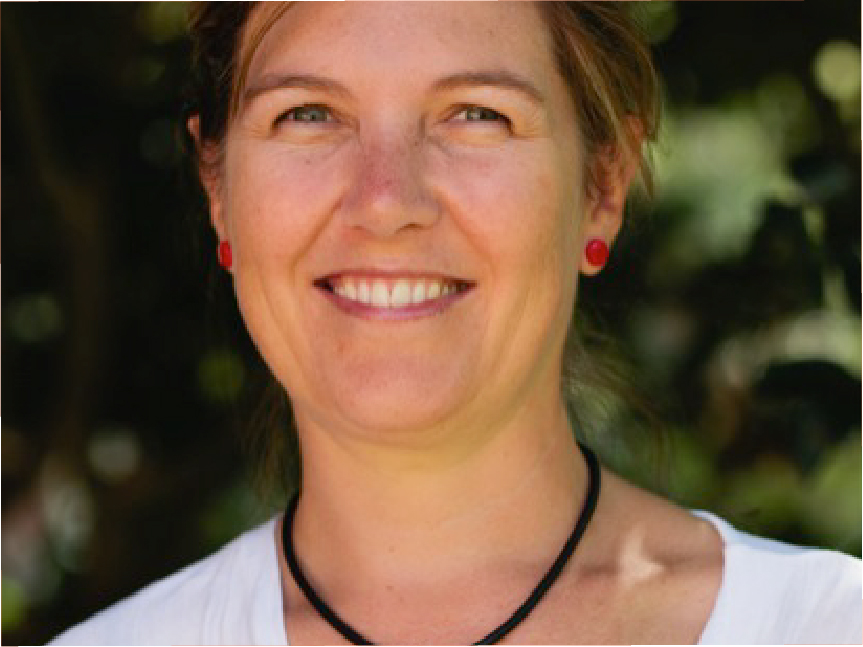
Dr Catherine Price
Postdoctoral Research Associate
[email protected]
Research: My research aims to develop solutions for conservation and wildlife management challenges, particularly related to foraging behaviour. I focus on understanding and manipulating olfactory-driven processes and decision-making in mammals. My research has already demonstrated ecologically powerful effects; developing a novel technique to reduce predator impacts without the need to kill predators, and has been applied internationally to increase shorebird nesting success. I am now applying our understanding of herbivore foraging to reduce browsing damage in Australia and protect threatened plants from native and non-native browsers.
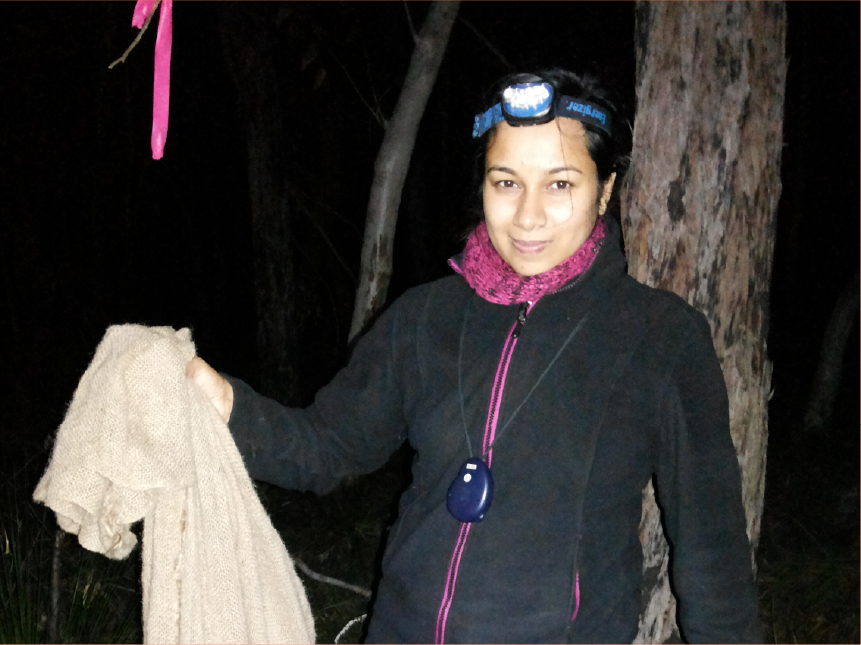
Dr Anushika P.H.M. Herath
Postdoctoral Research Associate
[email protected]
Research: I’m interested in parasitic diseases that humans and animals share, more specifically my work aims to explore the links between host individual trait variations and parasitic diseases that humans share with wildlife. At present I examine the links between parasitic disease with an emphasis on gut parasites (Cryptosporidium and Giardia, Nematodes), and individual host heterogeneities including behaviour, diet, gut microbiome using common brushtail possum hosts. My research on common brushtail possums in an urban-forest boundary in Australia, demonstrates an important link between animal personality and individual dietary specialisation and its application for invasive and threatened species management. My research outcomes are important for human health and wildlife health and the rising global concern of emerging infectious diseases as well as wildlife management.
Links: Functional ecology blog post
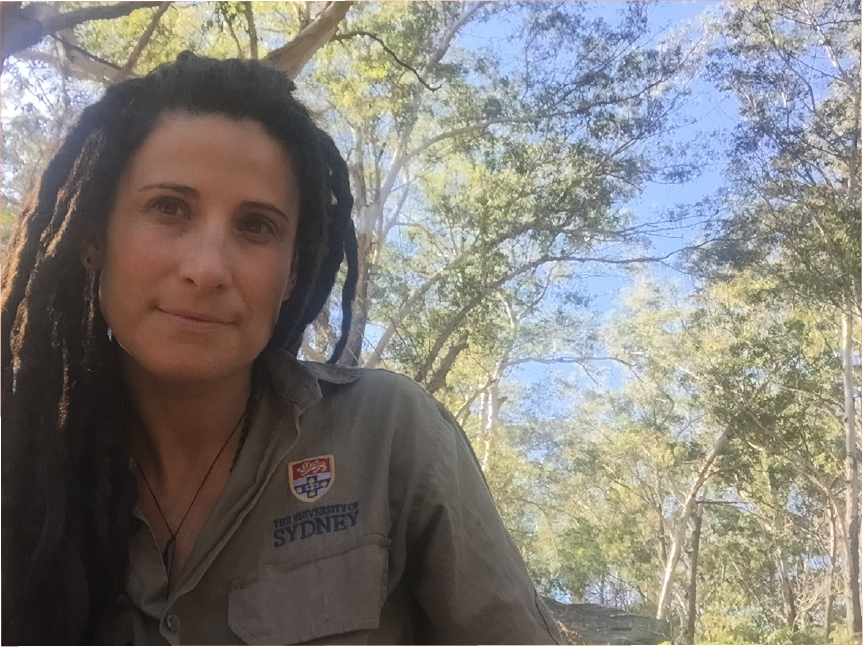
Jenna Bytheway
Senior Research Officer
[email protected]
Research: I am mainly involved in the graphical design of ideas and concepts in the McArthur Behavioural Ecology Lab.
Research Students
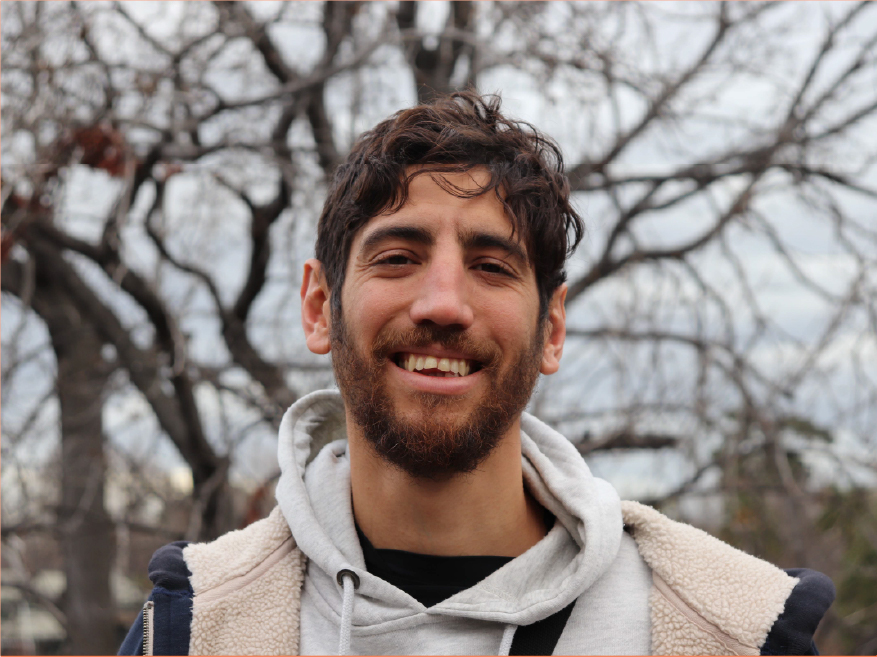
Gabriel Orlando
PhD Student
[email protected]
Research: Patch use and decision-making by foraging mammalian herbivores at small spatial and temporal scales. What are the covert drivers of feeding patterns?
Links: twitter.com/CGabrielOrlando
researchgate.net/profile/Cristian_Orlando
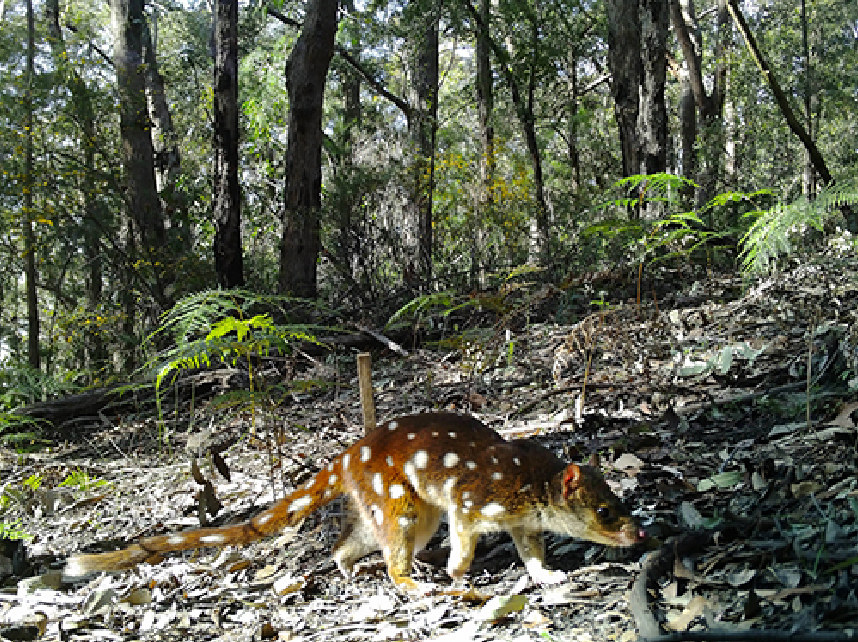
Nicole Lynch
PhD Student
[email protected]
Research: Implications of individual behavioural variation for the conservation and ecology of a threatened species, the spotted-tailed quoll (Dasyurus maculatus maculatus)
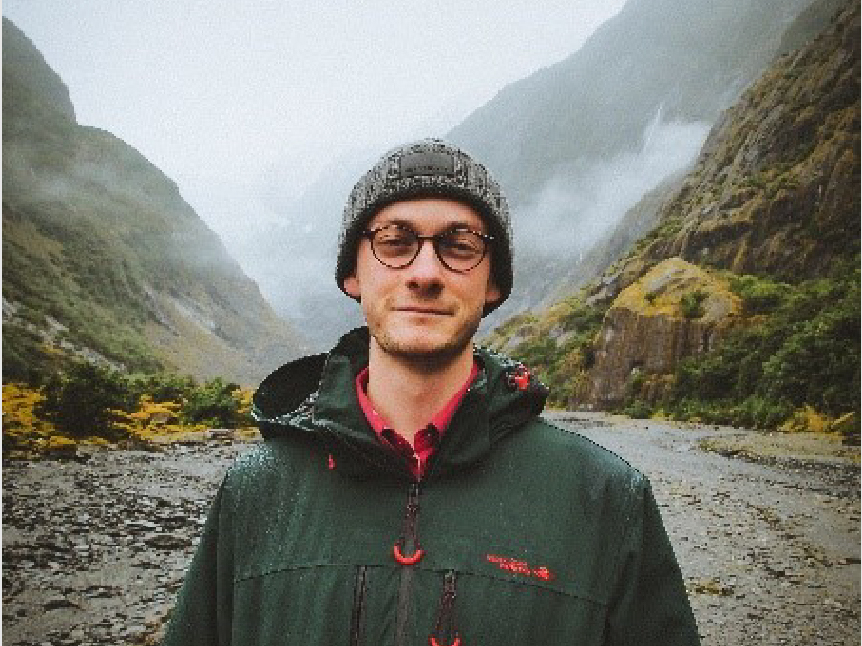
Patrick Finnerty
PhD Student
[email protected]
Research: Strategically exploiting plant odours to manipulate African elephant foraging behaviours
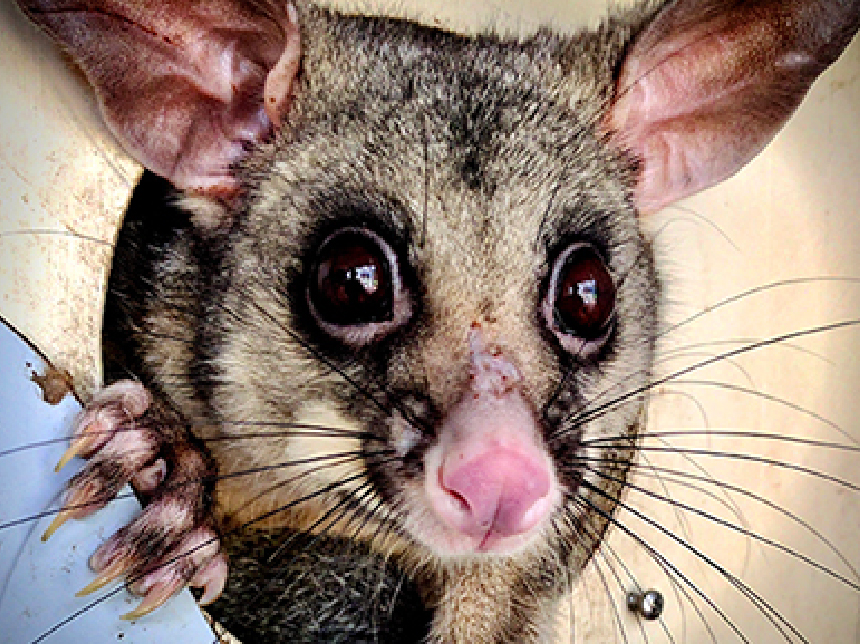
Anahi Castillo Angon
PhD Student
[email protected]
Research: Do wildlife make rational decisions when foraging?
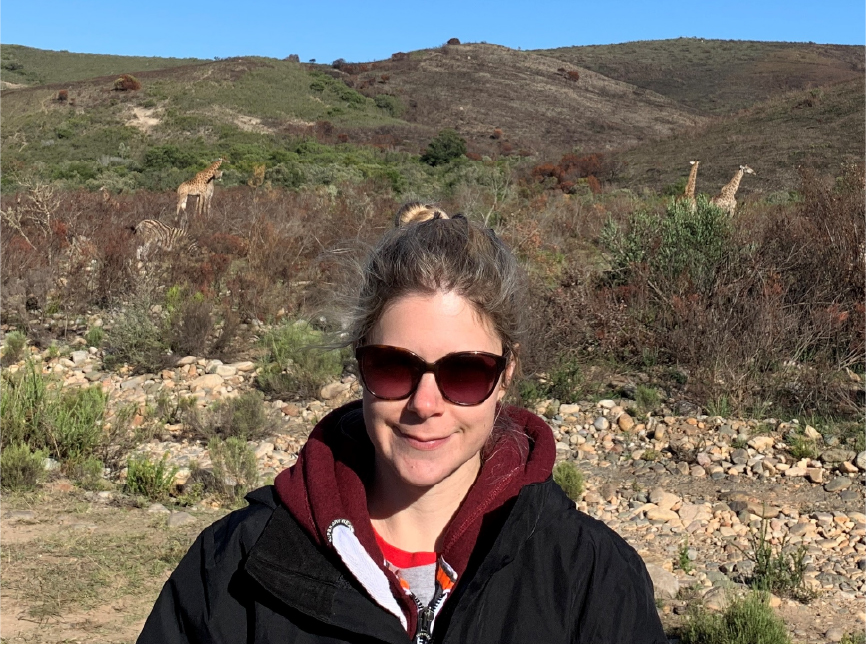
Hannah Harris
MPhil Student
[email protected]
Research: Does animal personality affect problem-solving in foraging common brushtail possums?
USYD Alumni
Postgraduates
- Anushika Herath (PhD 2021) Personality and its influence on diet and parasitic load of mammalian herbivores (Associate supervisor PB Banks).
- Kyla Johnstone (PhD 2021) Influence of animal personality on response of individuals to trap devices (Primary supervisor PB Banks).
- Adrian Rus (PhD 2020) Movement ecology of koalas as a function of intrinsic and extrinsic factors (Primary supervisor MR Crowther).
- Katie Yan Ka Wat (PhD 2019) Linking animal personality to space use and problem-solving by common brushtail possums, an urban exploiter (Associate supervisor PB Banks).
- Ryan Leonard (PhD 2018) Ecological impacts of air pollution from vehicle transport on vegetation and associated insect herbivores (Primary supervisor DF Hochuli).
- Kirsten A Connell (PhD 2016) Factors influencing the spatial distribution and ecological interactions of a habitat specialist, the semi-aquatic water rat (Hydromys chrysogaster) (Associate supervisor CR Dickman).
- Petah Low (PhD 2016) The ecology and behaviour of eucalypt-feeding caterpillars in relation to avoiding mortality from natural enemies (Primary supervisor DF Hochuli).
- Rebecca Stutz (PhD 2016) Associational plant refuges in a matrix of abundant herbivores (Associate supervisor PB Banks).
- Valentina Mella (PhD 2014) The role of food quality, predation and personality in foraging by brushtail possums (Associate supervisor PB Banks).
- Miguel Bedoya Perez (PhD 2013) Foraging responses of swamp wallabies (Wallabia bicolor) to plant chemistry, vegetation composition and diversity (Associate supervisor PB Banks).
- Carolyn Nersesian (PhD 2010) Foraging efficiency: quantifying the cost of plant toxins to herbivores (Associate supervisor PB Banks).
- Katherine Tuft (PhD 2010) The foraging ecology of the brush-tailed rock-wallaby (Associate supervisor MR Crowther).
- Phillip Borchard (PhD 2009) The ecological impact of wombats (Vombatus ursinus) and cattle (Bos taurus) in a southeastern Australian agricultural riparian system (Associate supervisors CR Dickman & J McIlroy).
Honours graduates
- Laura Grant (2021) Using olfactory misinformation strategies to reduce the browsing impacts of mammalian herbivores on plants (Primary supervisor Dr. Catherine Price, Associate supervisor PB Banks).
- Liam Guest (2021) Can plant odour associations shape herbivore foraging decisions? (Primary supervisor Dr. Catherine Price, Associate supervisor PB Banks).
- Annabelle Lee (2020) The effect of decoys on foraging decisions in the invasive black rat (Rattus rattus) (Associate supervisor PB Banks).
- Nicole Lynch (2019) The impact of animal personality on problem-solving ability in wild rodents (Associate supervisor PB Banks).
- James Nettle (2018) Impact of plant odour and atmospheric pollution on mammalian herbivore foraging (Associate supervisors PB Banks & M Possell).
- Violeta Castillo Angon (2017) Do common brushtail possums make rational decisions when foraging? (Associate supervisors T Latty & VSA Mella).
- Angela Rana (2017) The influences of physiological stress, personality, and behavioural mechanisms on problem solving by common brushtail possums (Associate supervisors K Webster & VSA Mella).
- Callum Gillies (2017) Behavioural Ecology of Brushtail Possums: Space use and survival of hand-reared juvenile possums (Primary supervisor VSA Mella, Associate supervisor C Herbert).
- Alice Si (2016) Use and defence of nectar as a resource by Noisy Miners in urban Sydney (Primary supervisor CE Taylor).
- Justin Hechinger (2016) Ecological responses of the common brushtail possum (Trichosurus vulpecula) to different predator scenarios (Primary supervisor CR Dickman).
- Jason Hawkins (2015) Foraging in a landscape of food and fear: Insights into space use from an environmental and individual perspective (Associate supervisor PB Banks).
- Lakshmi Sunderasan (2014) Possums, problems and personality: How do individuals respond to novel situations and challenges in their environment? (Associate supervisor PB Banks).
- Margot Law (2014) Urbanisation and the ecology of insect plant interactions: the role of spatial scale and species identity (Primary supervisor DF Hochuli).
- Jordan Krucler (2013) Quantifying ecologically relevant personality traits and their link to movement patterns in wild common brushtail possums (Trichosurus vulpecula) (Associate supervisor PB Banks).
- Elyce Coluccio (2012) Foraging strategies of bush rats and black rats in response to food and fear (Associate supervisor PB Banks).
- Ryan Leonard (2012) Another one bites the dust – the effects of wind and dust on a model plant and insect herbivore (Primary supervisor DF Hochuli).
- Petah Low (2011) Direct and indirect effects of host plant attributes on insect herbivores (Primary supervisor DF Hochuli).
- Chayna Moldrich (2009) Risky business: the effects of plant defences and predation risk on the foraging behaviour of the common brushtail possum (Associate supervisor PB Banks).
- Dan Issa (2009) Plant toxins and predation risk shape swamp wallaby (Wallabia bicolor) foraging patterns (Associate supervisor PB Banks).
- Sahar Kirmani (2008) Influence of plant toxins and predation on foraging behaviour of brushtail possums (Associate supervisor PB Banks).
- Helen Stephens (2007) Interactions between browsing Rusa deer (Cervus timorensis) and plants in Royal National Park (Associate supervisor CE Taylor).
- Oliver Bradshaw (2006) Effects of wind and nutrients on plants and consequences for herbivory (Associate supervisor AJ Pile).
- Anthony Gould (2006) Effects of wave exposure on subtidal macroalgae dominated by temperate reefs: implications for individuals and the community (Primary supervisor AJ Pile).
- Leonard Drynan (2005) Dietary responses of a generalist herbivore (Trichosurus vulpecula) along a habitat diversity gradient (associate supervisor CE Taylor)
- Katherine Tuft (2005) Brushtailed rock-wallabies (Petrogale penicillata) in the Warrumbungle National Park: potential for dietary competition with sympatric macropods (Associate supervisor MS Crowther).
